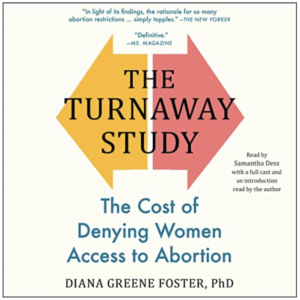Image from the Plan C website.
“A safe abortion with pills requires only three things: accurate information, quality medications, and mutual respect and trust.” Doctors Without Borders
In the past there was a sharp division between safe (legal) abortions and unsafe (illegal) abortions. Recently that line has been blurred with Self-Managed Abortions (SMAs).
Even when abortion was legal all over the USA, there were occasional women who would try to abort a pregnancy outside the medical system. Most commonly they would use herbs or misoprostol, the prescription-only medication that is sometimes available on the black market. Here’s an example:
June, a 26-year-old woman, went to her doctor who only recommended that she continue her unplanned pregnancy to term. To paraphrase her quote in a study of SMA, “I did some stuff on my own because I didn’t think she would help me get the abortion I wanted.” She took antibiotic pills and ibuprofen after she had a positive pregnancy test, but ended up going to an abortion clinic when her SMA didn’t work.
Other women in the same small study tried to abort unintended pregnancies using: vitamin C, parsley tea, multiple contraceptive tablets, dong quai, black cohosh, gingerroot and alcohol. Sometimes bleeding started and sometimes it didn’t. Since not all of the women had taken a pregnancy test before trying SMA, it is impossible to know the effectiveness of their attempts to abort. Fortunately, none of the woman had a bad effect from their attempts at SMA. Oil of pennyroyal is known to be an effective abortifacient; however, it has also known to sometimes be fatal for the woman who takes it.
Fortunately, medication abortion using mifepristone and misoprostol is safe and effective. The combination was approved by the FDA in 2000. As more and more women used this combination it became clear that it is very safe—especially when compared to carrying a pregnancy to term.
Recently the combination has been approved for “telemedicine”. Contact between a woman with an unintended pregnancy and her healthcare provider can be by electronic means, similar to Zoom. The provider asks questions such as when the woman’s last period was, as well as about her general health. If the person is a candidate for medication abortion, the appropriate pills can then be sent to her, with clear written instructions how they should be taken. The instructions also tell the woman what to expect, and when she should seek emergency care.
How safe and effective are telemedicine abortions? In a study of over 6000 women who did not visit a clinic in person, they found no difference from women who had face-to-face contact with a healthcare provider. Only 2 of 1000 women had a serious adverse event, and the success rate of causing an abortion was almost 98%. These figures are similar to studies of medication abortion in which patients visited a clinic.
Telemedicine has reduced the cost to obtain an abortion—the interview can be done from the woman’s home so little time and no travel are required. The pills are shipped by a delivery service or mail, and will arrive in a few days, allowing the woman to choose when to start her abortion. But the real advantage of telemedicine is for people who live in states where this necessary part of healthcare is severely limited or illegal.
Doctors Without Borders has a series of videos on SMA, available at: https://www.doctorswithoutborders.org/latest/how-have-safe-self-managed-abortion. Although DWB mainly works in developing countries, this information also applies to some states in the US. The nonprofit Plan C supports SMA by providing information about access to abortion pills, including their cost.
©Richard Grossman MD, 2024
